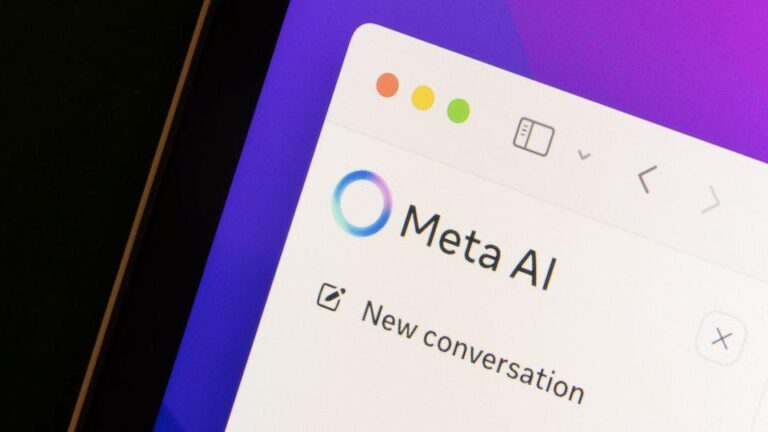Meta has sparked renewed debate over data privacy and artificial intelligence ethics after revealing that its AI systems rely on personal information extracted from social media posts to better understand “Australian concepts.” According to reports in The Guardian, the tech giant argues that accessing this localized user data is essential for training its algorithms to comprehend cultural nuances specific to Australia. The revelation raises pressing questions about the balance between advancing AI capabilities and protecting individual privacy in an era of increasing digital surveillance.
Meta defends use of personal data to improve AI understanding of Australian cultural nuances
Meta has publicly justified its continued access to personal data from Australian users, stating that such information is crucial for enhancing its artificial intelligence systems’ grasp of local cultural contexts. The company argues that AI models require exposure to genuine social media interactions to accurately interpret and respond to uniquely Australian expressions, slang, and social nuances. By leveraging this data, Meta claims it can refine the AI’s ability to deliver content and services that resonate authentically with Australian audiences, improving user experience through culturally aware algorithms.
In its detailed response, Meta outlined specific areas where personal data contributes to AI training, highlighting the challenges of teaching machines to understand complex cultural references without real-world examples. To illustrate this point, the company shared a simplified framework showing how different types of data feed into AI learning:
| Data Type | Purpose in AI Training | Example |
|---|---|---|
| Textual Posts | Contextual language understanding | “Arvo” meaning afternoon |
| Images & Videos | Cultural symbolism recognition | Footy game celebrations |
| Location Tags | Regional dialect adaptation | Sydney vs. Melbourne slang |
- Privacy advocates remain skeptical, urging clearer transparency on data use.
- Regulators have called for stricter controls amid growing concerns over consent.
- Meta asserts its commitment to anonymizing data to protect user identities.
Privacy experts raise concerns over social media data mining and user consent practices
Privacy experts have voiced significant apprehension regarding the methods social media giants, particularly Meta, use to collect and process personal data. Critics argue that the company’s justification for harvesting vast amounts of user-generated content-to train AI systems aimed at understanding “Australian concepts”-raises serious ethical and legal questions. Concerns focus on the transparency of consent mechanisms, with many users reportedly unaware that their posts are being mined for purposes extending beyond the original platform experience. This, experts warn, risks eroding trust and undermining established data protection norms.
Key issues highlighted include:
- Ambiguity of user consent: Users often provide implicit consent without fully understanding the scope.
- Scope creep: Data initially shared for social interaction is repurposed for AI training without explicit permission.
- Data minimization principles: Experts argue that the volume of data collected far exceeds what is necessary for AI development.
| Concern | Impact | Suggested Action |
|---|---|---|
| Inadequate transparency | User mistrust | Clearer communication |
| Implicit consent | Legal challenges | Explicit opt-in models |
| Excessive data use | Privacy risk | Strict data minimization |
Calls for stricter regulations on AI training datasets to protect individual privacy rights
In response to Meta’s assertion that access to personal data from social media posts is essential for training AI systems to understand nuanced “Australian concepts,” privacy advocates and legal experts have intensified their calls for robust legislative measures. Critics argue that using individual posts, often shared without explicit consent for AI training purposes, poses significant risks to personal privacy. They emphasize the need for clearer consent mechanisms and stringent oversight to ensure that users maintain control over how their digital footprints are leveraged.
Adding to the urgency, policymakers are proposing regulatory frameworks that focus on:
- Transparency requirements mandating companies disclose training data sources.
- Data minimization principles to limit unnecessary personal information collection.
- Stronger enforcement powers for privacy commissions to audit AI training practices.
- Guaranteed rights for individuals to opt out of data usage in AI development.
| Proposed Regulation | Expected Impact |
|---|---|
| Mandatory Data Source Disclosure | Increased user trust and data transparency |
| User Consent Verification | Better control over personal information use |
| Audit Rights for Regulators | Enhanced accountability and compliance |
In Retrospect
As Meta continues to navigate the complex landscape of artificial intelligence development, its argument for leveraging personal data from social media posts to better understand cultural nuances such as “Australian concepts” raises significant questions about privacy and consent. The debate highlights the ongoing tension between technological advancement and the protection of individual rights, underscoring the need for transparent policies and robust regulatory frameworks. As this story unfolds, it remains to be seen how Meta and other tech giants will balance innovation with ethical considerations in an increasingly data-driven world.




